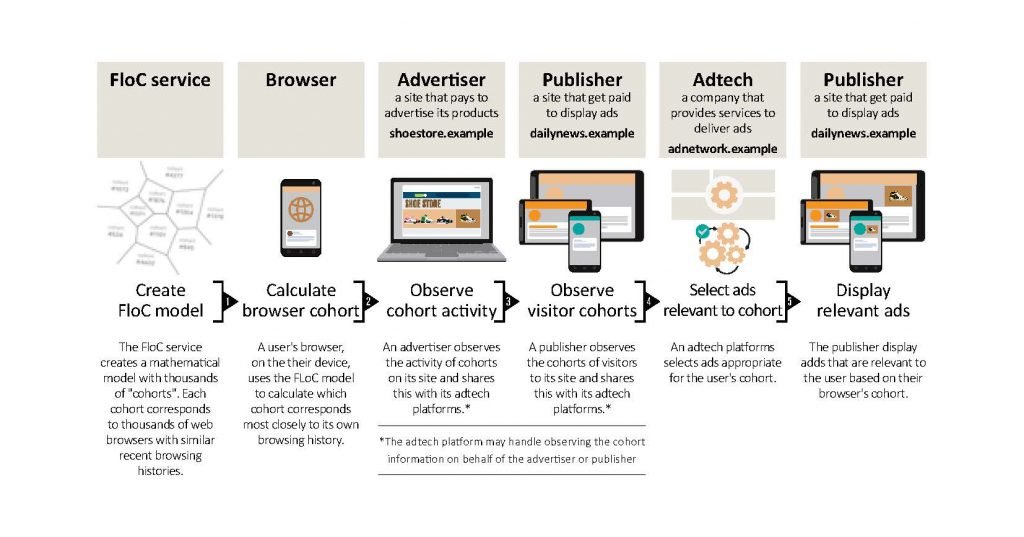No Cookies for You
Last January, Google announced that starting from 2022, the Chrome browser will no longer support third-party cookies. Behind this brief statement lies a real revolution in the field of privacy and targeted online advertising. Since their invention in 1994, cookies were the most common way for the online advertising industry to collect and store information about surfers, cookies were a cornerstone that allowed to track the actions of the surfer on the site and based on this information, submit the surfer to customized advertising. The end of support of cookies means the most fundamental change in the online advertising principles in the last 25 years.
Chrome may not be the first browser to stop supporting cookies (it was preceded by “small” browsers like Mozilla’s Firefox and Apple’s Safari), but when a browser that holds 69.28% of global traffic announces the end of cookies – then it means that most web browsing no longer supports cookies.
So who will save us from Google’s policy changes?
Well… Google. Or rather, Google’s FLoC.
What the F*ck is FLoC?
FLoC – federated learning of cohorts or in other words, unified group learning – is a new technology from Google that will replace the use of cookies by categorizing surfers into groups based on areas of interest. This method allows marketeers to advertise to groups according to their interests while the individual surfer gets to maintain their privacy by being “assimilated into the audience”.
The grouping will be dynamic and will respond to changes in the surfer’s behavior. For example, surfers who enter banquet hall sites, look for catering, wedding dresses, and groom suits may be affiliated with the “engaged” group and be targeted with appropriate messages, as long as their surfing patterns match those of this group. When their surfing patterns change after the wedding – for example when they start browsing sites about pregnancy and childbirth – they will be removed from the engaged group and re-categorized into the “expectant parents” group.
Why Did They Move My Cheese?
In recent years, the demand for privacy on the web has intensified from both surfers and the regulatory authorities. Every site that uses cookies is required to present a clear message to the surfers and obtain their consent to collect the information about them. Other players on the search engine market (Safari and Firefox) have already started blocking the use of cookies. Regulatory bodies have begun enforcing guidelines against the use of individual information about surfers.
The demand on protecting surfers’ privacy by terminating the use of cookies has led advertisers and ad-tech companies to adopt a tactic known as fingerprinting, a method that employs various advertising tools to try to identify the browser used by the surfer. In practice, the fingerprinting technique has been violating surfers’ privacy more than the use of cookies as it collects more detailed information than cookies and unlike cookies, it is not required to ask the surfers to confirm the collection of their information and doesn’t allow them to decline this information be collected.
According to Google, the move to FLoC will offer a middle ground between the marketeers’ need to identify target audiences and tailor their advertising, and the surfers’ need to protect their privacy. This is how Google intends to close the gap with its competitors, who have already implemented the cookie ban, while providing what it sees as a better solution for both surfers and advertisers.
Bottom Line, How Will This Affect Advertisers?
As it seems, advertisers should not be harmed by the move to FLoC. The same target categories that already exist on Google today will continue to be available, but instead of targeting on the individual surfer level, targeting will be done based on groups of thousands or tens of thousands of people who are relevant to the targeted area of interest.

Got no cookies? Bake at home!
While there is no way of avoiding the policy change, we have quite a few ways to prepare for it:
Self-collection of information. Google’s targeting changes only apply to audiences that are targeted via third-party cookies. Usage of own information (first-party cookies) is not affected and will not be affected by the changes. Meaning if we have a mailing list or a club member contact information (AKA data) – we can continue to use them as custom audiences that can be uploaded and targeted in our account.
Stay up to date. The transition to FLoC is still in its infancy and as Google expands it to more countries, more changes and updates are expected to be made to how it affects online advertising and user privacy. It will be important to stay up to date with all the details and developments.
Broaden the range of used tools to such that do not need to rely on cookies. For example, Google and Facebook lead form-based activities, or color-based engagement (e.g., watching videos on Facebook or YouTube). This information will allow us to continue to color relevant surfers independently of cookies, and therefore will remain relevant also in future, regardless of the transition to FLoC.












